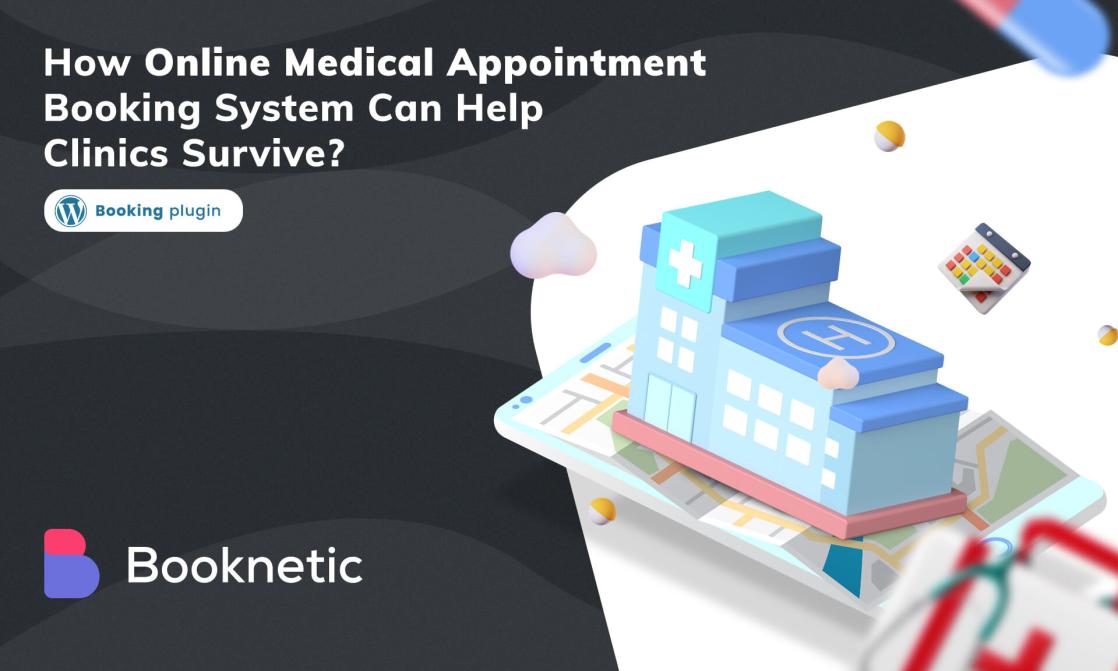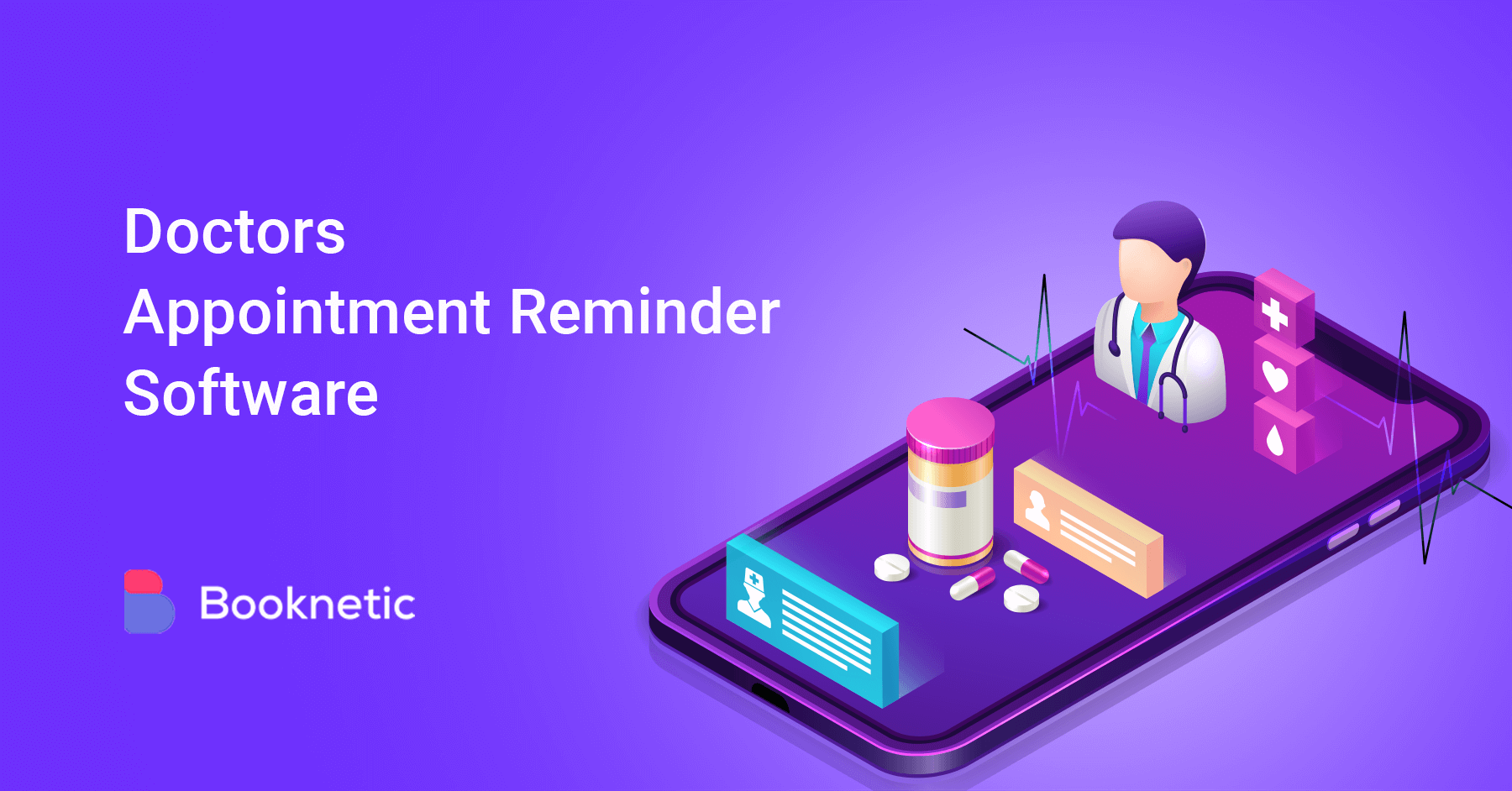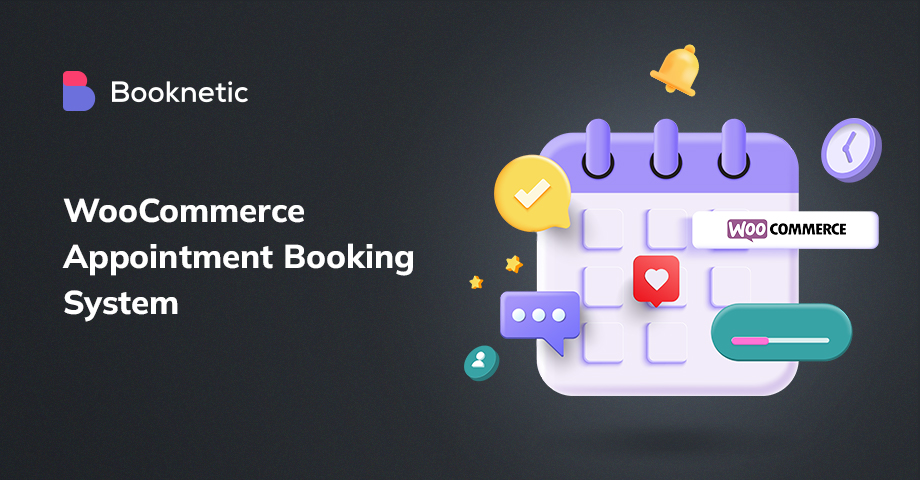
Technological advancements are shaping the future of business, and appointment booking systems are a key part of this. Businesses need to stay ahead of the trends and adopt systems that can keep up with the latest changes. Today we will tell you the biggest trends in appointment booking to keep you ahead of the curve.
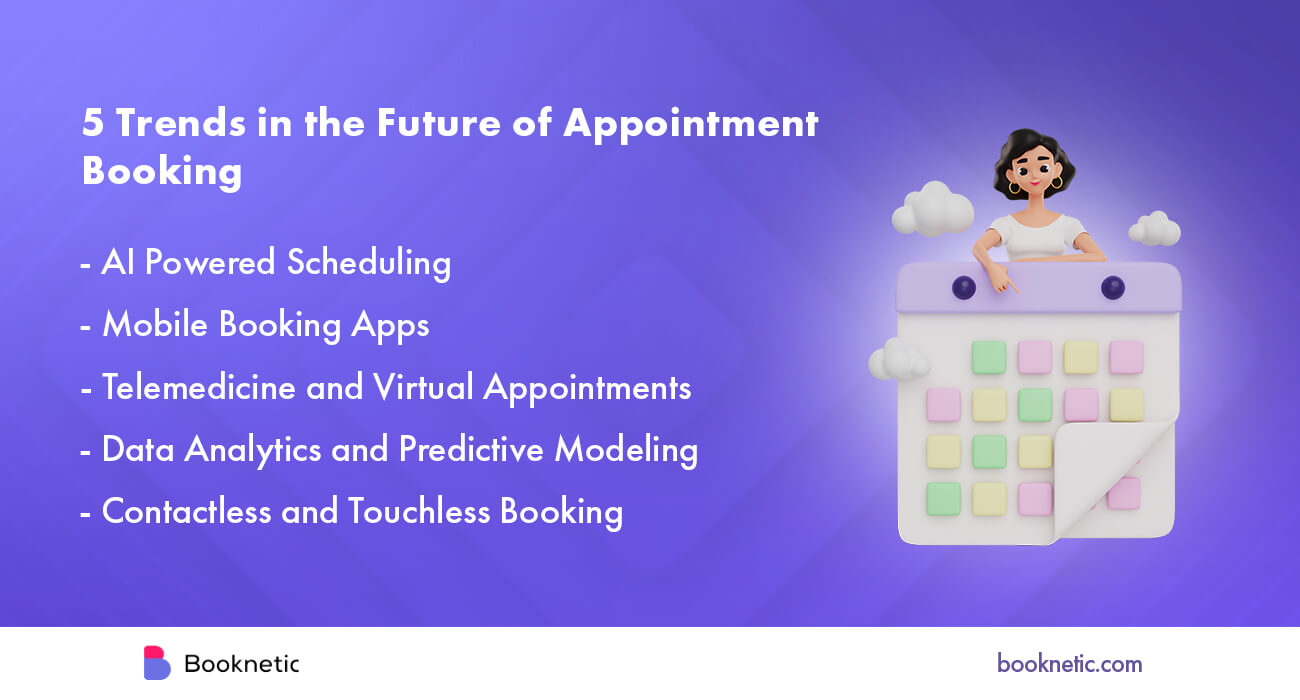
Trend 1: AI-Powered Scheduling
Artificial Intelligence (AI) is no longer a term confined to sci-fi novels. It's here, and it's transforming the appointment booking system world. Just as content creators and developers are utilizing AI, appointment booking system can and will do so.
Imagine a system that can predict when a client is likely to cancel and reschedule automatically! That would be revolutionary. People can easily reschedule according on their free time and they wouldn’t need to check if they are free or not; AI will do the ground work for them.
How exactly is AI revolutionizing appointment booking systems?
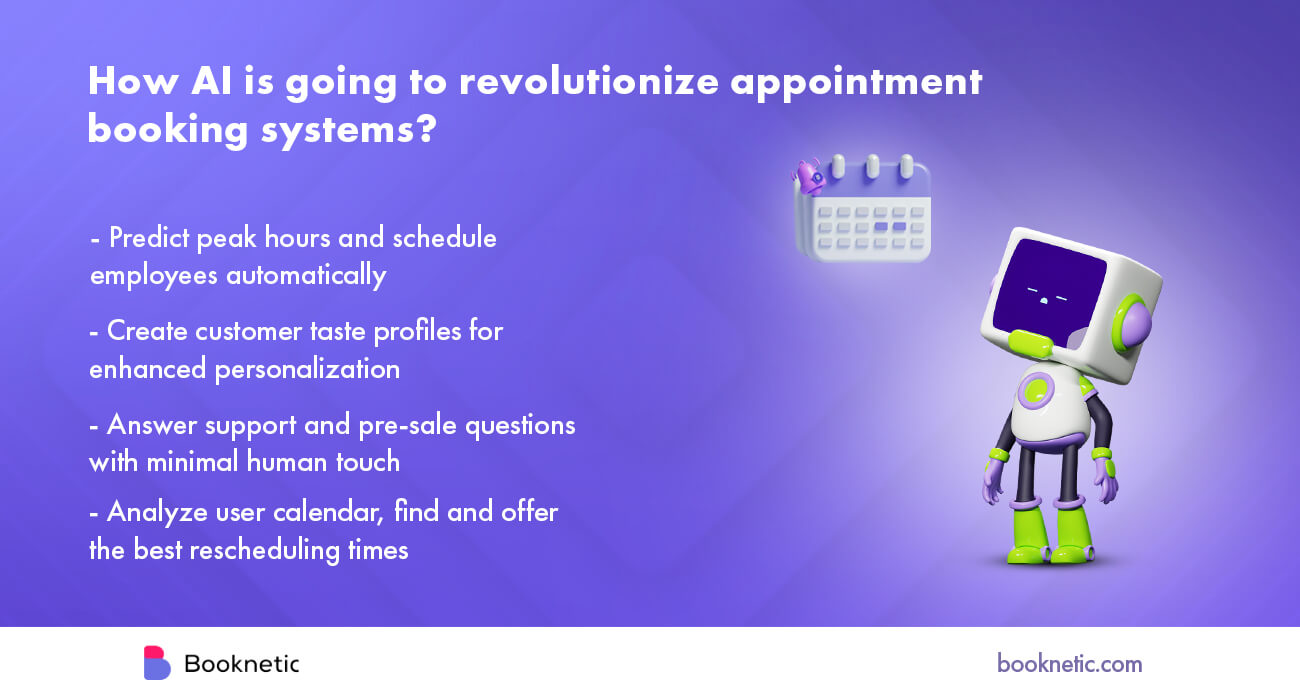
AI is revolutionizing appointment booking systems by introducing predictive algorithms that understand user behavior, optimize scheduling slots, and offer real-time solutions including advanced innovations like AI voice cloning, which further streamline user interactions.
For instance, based on historical data, AI can predict peak booking times, helping businesses allocate resources more efficiently. AI is transforming how we manage our schedules. Appointment booking systems use predictive algorithms to offer real-time solutions and personalized experiences. This isn't just for businesses; individuals are also benefiting. Explore the possibilities of AI for personal use and see how you can streamline daily tasks with an AI personal assistant.
What real-world benefits does AI bring to the table in the scheduling realm?
In real-world situations AI significantly reduces time expenditure by automating repetitive processes and reducing the need for human intervention in mundane tasks. This not only speeds up the booking process but also minimizes human-induced errors like grammatical mistakes or misclicks.
Furthermore, AI-driven systems provide personalized experiences, analyzing a user's past interactions to suggest ideal appointment times or even recommend relevant services. This personal touch, backed by data-driven insights, ensures users receive tailored experiences, enhancing overall satisfaction.
What concerns arise when we talk about AI in booking?
AI is a powerful tool with many benefits, but it also raises some concerns. These include data privacy, algorithmic bias, and over-reliance on technology. It's important to be aware of these concerns and to take steps to address them as we develop and use AI.
Trend 2: Mobile Booking Apps
Pick up your smartphone, and you're likely to find a number of apps in it, from food delivery to meditation. Among these, mobile booking apps have confidently carved a niche for themselves. Grateful for the convenience they offer, users now prefer booking their appointments on-the-go, be it for a spa treatment or a dentist's visit.
Businesses looking to develop or enhance their mobile booking solutions can benefit greatly from partnering with mobile app development services, ensuring a seamless, secure, and user-friendly experience for their customers.
Features like real-time notifications, integrated calendars, and seamless payment options further enhance the user experience. However, as these apps store personal information, security considerations become paramount.
How have mobile booking apps reshaped the way we schedule our appointments?
Mobile booking apps have made scheduling appointments a breeze. With just a few taps, users can book, reschedule, or cancel appointments from anywhere, anytime. This convenience has led to increased user engagement, reduced no-show rates, and a more streamlined booking process.
When considering app development, what features are non-negotiable for businesses today?
Several features have emerged as non-negotiable for businesses aiming for a competitive edge. Real-time notifications keep users updated about their bookings, while integrated calendars allow for easy tracking of appointments.
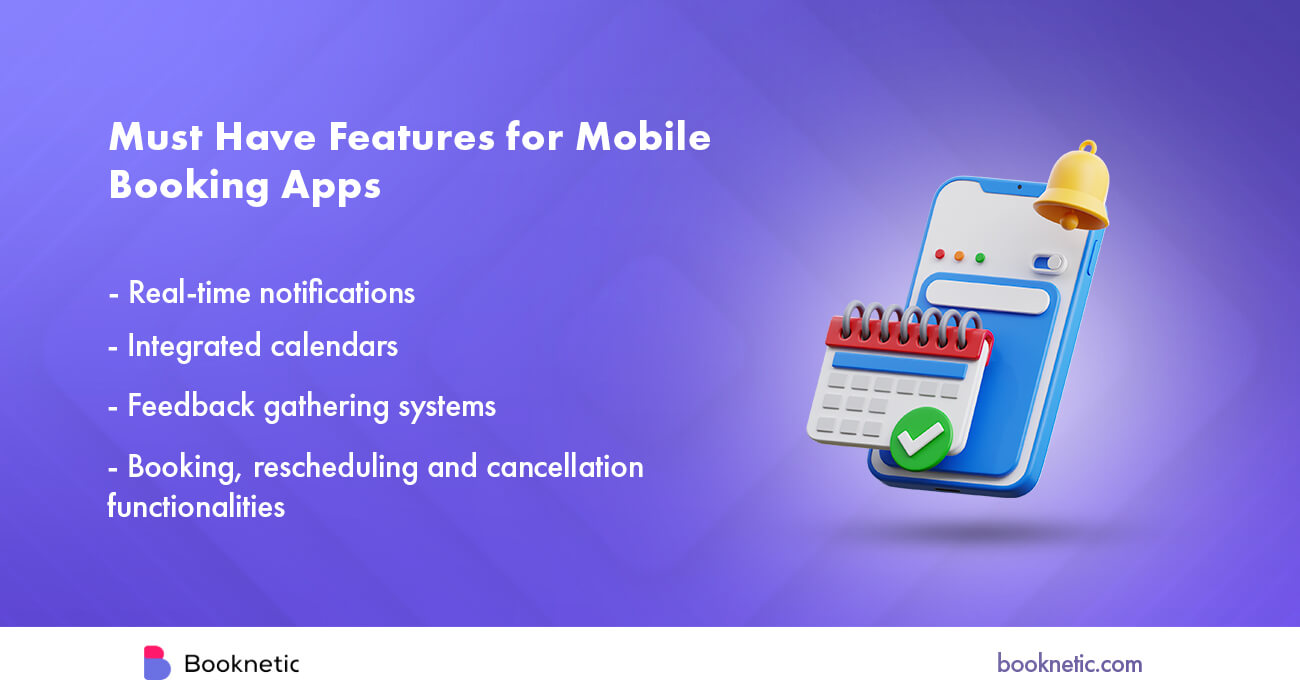
Seamless payment gateways ensure smooth transactional experiences, while an intuitive user interface ensures that users can navigate the app with ease. Additionally, features like compatibility across various devices, mechanisms for gathering customer feedback, and provisions for accessibility make the app inclusive and user-centric.
How can businesses ensure these apps are secure and trustworthy?
Businesses can use strong encryption like 256 bit encryption, regular audits every 3-6 months, and data privacy policies to increase security. They can also educate users about security best practices, like using strong passwords and two-factor authentication.
In addition to implementing strong encryption and regular audits, using a reliable password manager can enhance security by safeguarding access credentials, ensuring that sensitive data remains protected across all systems.
Trend 3: Telemedicine and Virtual Appointments
The healthcare industry witnessed a paradigm shift with the advent of telemedicine. Virtual appointments, once a novelty, are now a necessity. Remote consultations, be it with a primary care physician or a therapist, have made healthcare accessible to many who earlier faced geographical or physical constraints.
Moreover, these virtual platforms offer features like prescription refills, health record storage, and appointment reminders, further elevating the patient experience. However, with the rise of virtual appointments, concerns about patient privacy and data protection also emerge.
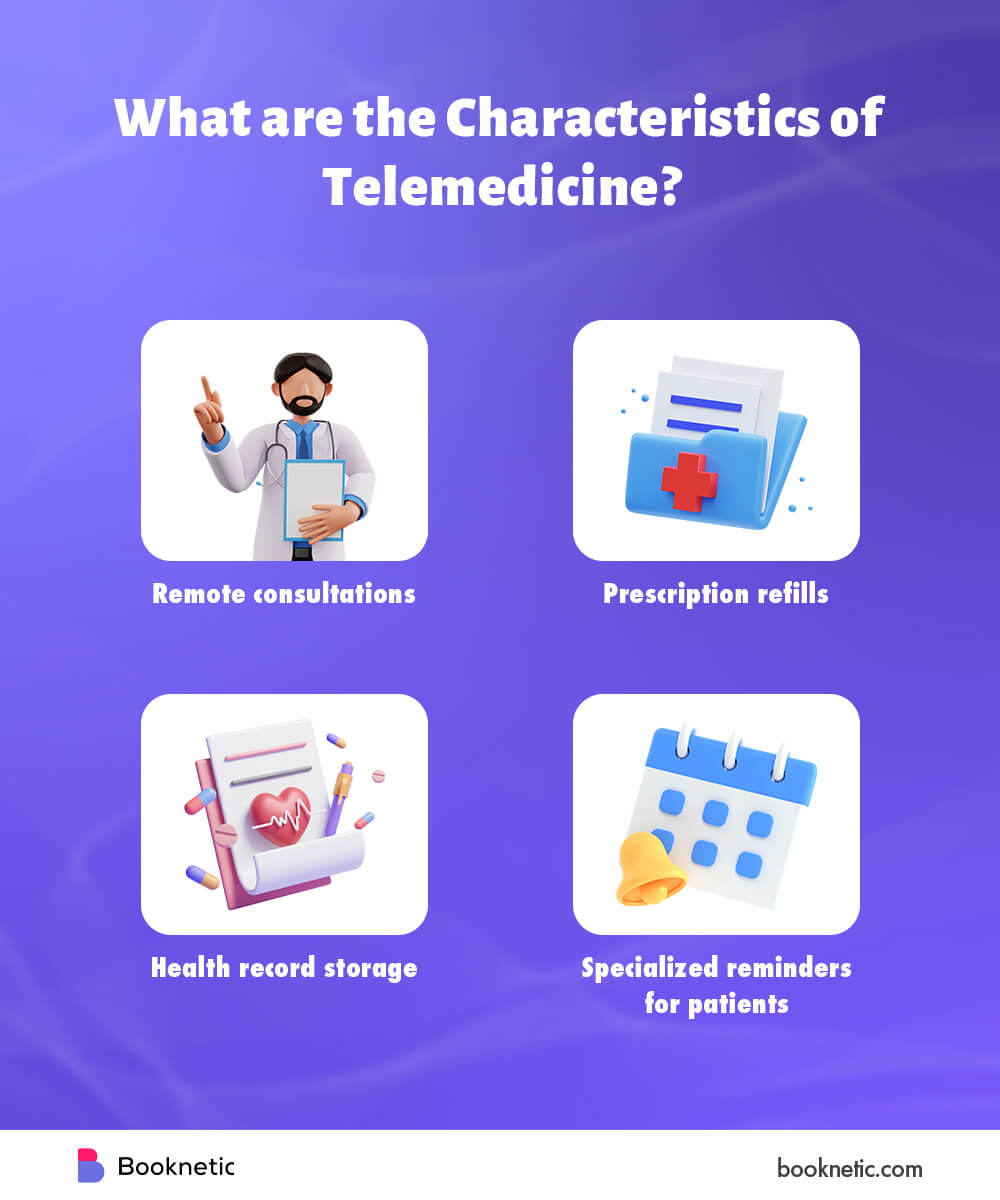
In what ways has telemedicine influenced appointment booking systems in healthcare?
With remote consultations becoming commonplace, booking systems have evolved to integrate virtual meeting platforms such as Zoom or Google Meet. This includes tools for video conferencing, online prescription management, and digital health record storage.
Additionally, these systems now account for variables like different time zones, given the global nature of virtual consultations.
What technologies are at the forefront of facilitating smooth virtual consultations?
High-def video, encrypted messaging, cloud storage, and appointment reminders make virtual consultations as effective, secure, and smooth as in-person ones, which is why they are so important in modern telemedicine systems.
How can healthcare industry provide privacy during virtual appointments?
Healthcare providers can ensure privacy during virtual appointments by using encrypted communication tools, following data privacy regulations, training staff and patients on digital privacy, conducting regular security audits, and updating security protocols. These measures combine convenience with patient data protection.
Trend 4: Data Analytics and Predictive Analytics
Data analytics is essential for businesses to thrive. It can be used to optimize scheduling, forecast demand, and improve the user experience. Businesses must protect customer privacy while using data.
Extensive use of big data and predictive analytics will be a great trend in the upcoming days. So make sure you know the ins and outs of it.
How is data analytics revolutionizing appointment management and scheduling?
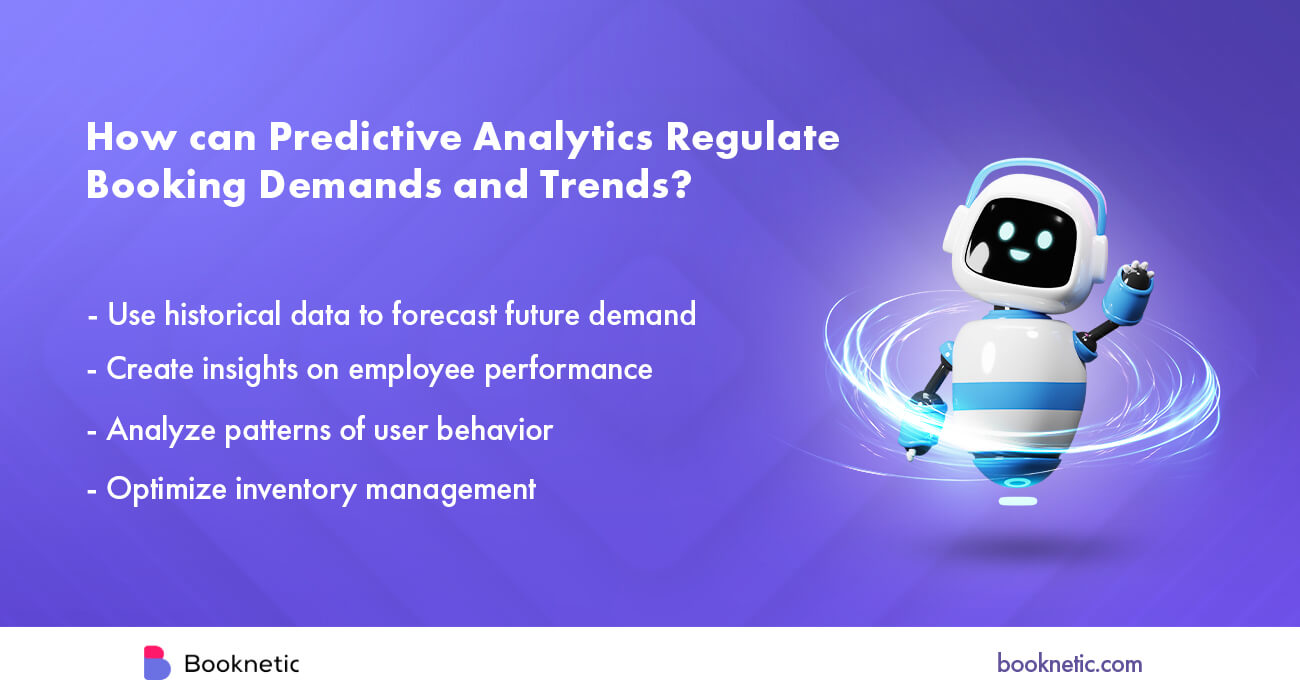
Data analytics is infusing appointment management systems with insights that allow for enhanced decision-making. By analyzing user behavior, preferences, and interactions, businesses can discern patterns, allowing them to optimize scheduling processes.
For instance, if a beauty salon determines its most important service is hair coloring, it could hire more employees specialized in this category.
In what ways can predictive analytics forecast booking demands and trends?
Predictive analytics uses historical data to forecast future demand. This can help businesses plan ahead and allocate resources more efficiently. For example, if you see that your business dries up a week before a holiday and surges during it, you can manage your inventory more effectively.
With the influx of customer data, what measures should businesses adopt to ensure data privacy?
Businesses should clearly outline how data is used and stored, should be in place. Using encrypted storage can protect your data from being stolen or accessed by unauthorized people. Regular training sessions can educate staff on data privacy best practices, reducing mishandling or misuses. Implementing a mentor matching program within the organization can further enhance staff knowledge on data privacy best practices, ensuring effective implementation and reducing the risks of mishandling or misuses.
Finally, transparency is essential. Businesses can build trust and assure users that their information is in safe hands by clearly communicating to users how their data is being used and providing them with control over their data.
Trend 5: Contactless and Touchless Booking
The global pandemic brought to light the importance of contactless interactions. As the world gradually returns to a semblance of normalcy, the demand for contactless solutions in appointment booking systems remains high.
Contactless technologies like QR codes and online payments make it possible to book and attend appointments without physical contact. This is convenient and shows businesses' commitment to health and safety.
How are businesses adapting to the ever-growing demand for contactless booking solutions?
Businesses are integrating technologies like QR code scans for check-ins, online forms for data collection, and contactless payment solutions. They're also promoting these features as part of their commitment to customer safety and convenience. Here's how:
- Digital Integration: Many businesses are integrating advanced digital platforms that allow users to schedule, modify, or cancel appointments from their devices. This eliminates the need for in-person interactions or phone calls.
- QR Code Systems: QR codes have become a standard feature for many establishments. By simply scanning a code, customers can check in for their appointment, access service menus, or even make payments, minimizing physical touchpoints.
- Online Forms & Documentation: Instead of filling out paper forms upon arrival, businesses are offering online forms that clients can complete ahead of time, reducing waiting times and physical exchanges.
- Contactless Payments: The adoption of NFC (Near Field Communication) and other wireless payment methods ensures that transactions can occur without physical card swipes or cash exchanges. Mobile wallets, online invoicing, and digital payment platforms further enhance this touchless experience.
- Digital Kiosks: Some establishments have introduced digital kiosks with touchless navigation capabilities. These kiosks often come with gesture recognition or voice command features, allowing customers to check in or access information without physical contact.
- Communication & Education: Businesses are actively communicating the benefits and availability of contactless options to their customers through email campaigns, social media, and on-site signage. This not only educates customers but also encourages the adoption of touchless solutions.
- Feedback Mechanisms: To continually refine and improve, businesses are incorporating feedback mechanisms, allowing clients to share their experiences with contactless services and suggest enhancements.
What innovative technologies are paving the way for touchless appointments?
Innovative technologies are at the forefront of facilitating touchless appointments, transforming how we engage with businesses and service providers.
QR codes enable touchless check-ins and information access. NFC technology facilitates contactless payments. Voice-activated systems allow hands-free booking and navigation. Digital kiosks with sensors support gesture-based self-check-ins.
Biometrics, like facial recognition, ensure security without physical contact. Together, these technologies are streamlining touchless appointments for convenience and safety.
How do contactless bookings assure customers of their well-being in context of health and safety?
Contactless bookings assure customers of their well-being by reducing direct physical interactions, limiting the spread of diseases. They eliminate the need to touch shared items like pens or payment terminals, decreasing the chance of germ transmission.
Using online forms and digital payments further cuts down contact points. These systems also prevent crowding, allowing quick check-ins without queues. Essentially, contactless bookings prioritize customer health, making services safer and more efficient.
Conclusion
Appointment booking systems are evolving with AI and touchless technology. Businesses need to stay updated to thrive. The future of appointments is seamless, efficient, and memorable experiences.
And now, you have the information you need to prepare for the future of appointment booking.
Sign up for our newsletter
Be the first to know about releases and industry news and insights.
Booknetic is a simple yet powerful plugin for accepting online bookings & payments on your WordPress site.
